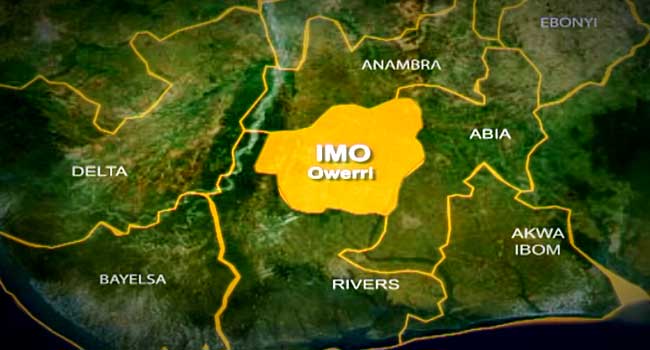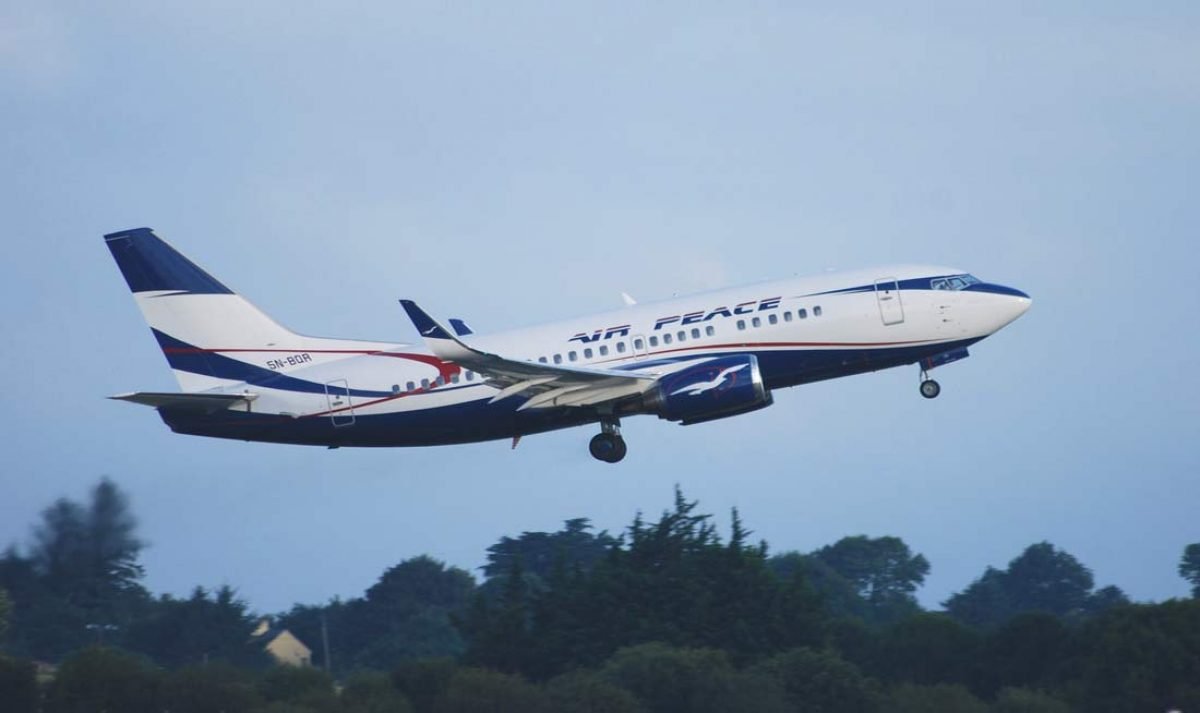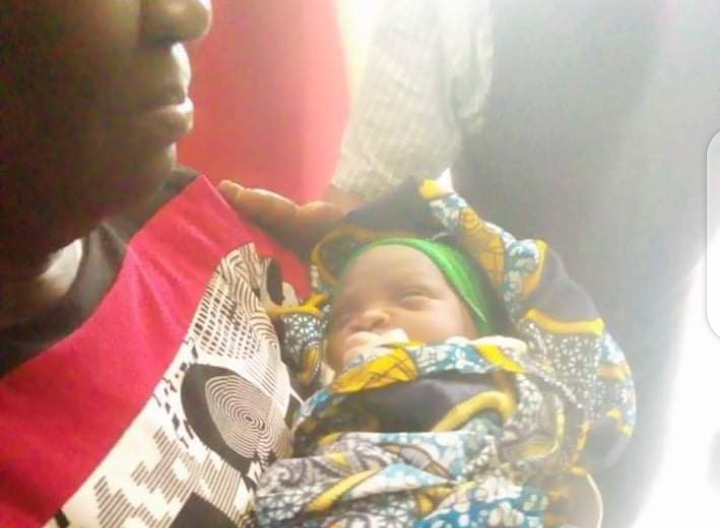On a number of occasions, I have felt the irresistible pull of homeland. Maybe it is the subliminal summons of my ancestors or the pull of my birth chord long buried beneath that immortal kola nut tree at the backyard of what used to be my mother’s hut. When in Nigeria and I feel that homeward call, it is time to head east and reconnect with the unconscious urging of ancestry. The departure of loved ones has made that homeward visitation fewer in recent years.
I am a Nigerian by nationality. My deep green passport says it all to outsiders. Once out there, I take the humiliations that passport attracts with dignified forbearance. (“Please step aside; this way, please!”). But I am originally Igbo. Since I am seven years older than independent Nigeria, I am Igbo before I became a Nigerian. My order of belongings follows that logic.
As I keep telling younger fellow Nigerians and my children, I belong to a lucky minority of Nigerians who have borne the citizenship of many countries while living in one. I have been a British colonial subject, citizen of independent Federation of Nigeria, citizen of Federal Republic of Nigeria (1963 onwards), citizen of Republic of Biafra (1967-70) and back to citizen of Federal Republic of Nigeria. I and my generation have been ferretted back and forth by the dizzying frenzy of Nigerian history up to this point of habitual regrets and nostalgic reflections in old age.
This past week, homeland called. I answered unconditionally along with an impressive array of home based and diaspora Igbos from as far afield as Australia, United States, United Kingdom, South Africa, United Arab Emirates and even unlikely places like the Pacific Island of Fiji. We gathered in Owerri for a Summit of the peoples of the South East of Nigeria. I do not like the description of South East. It is a geo location, a direction on the Nigerian national compass. Maybe a dog tag to identify a known Nigerian sub- set.
Since everyone from the Nigerian South East happens to be Igbo, I prefer to say that the Owerri Summit was a homecoming of Igbo sons and daughters for an urgent purpose. Our ancient wisdom holds that it is the unusual that forces nocturnal animals to scamper in a hurry by day time. And when the unusual happens and tragic stampede engulfs the village square, people of the same kindred flee together to their own homestead to review the situation and plot collective survival. And so to Owerri we all went in response to a matter of group survival in the increasing inferno of the Nigerian town square.
All five governors of the zone were present. All traditional rulers from the states as well led by the Obi of Onitsha, Alfred Achebe. I was meeting him for the first time in life and blood. By a strange coincidence, we sat next to each other on the flight from Lagos to Owerri. I met a perfect gentleman, devoid of the pomposity of artificial royalty and conferred importance. There were opinion leaders as well as women leaders, youth representatives, town unions, market associations, the clergy and a surfeit of the Nigerian political and security apparatus. Chair Person of the Summit team was my friend and sister, Senator Chris Anyanwu, ever sure-footed, confident and crisp in mind and body.
Literally, Nigerian history and politics ‘chased’ us home. I prefer to see the Owerri Summit on Security, Economy and Politics in the South East as a forced response of desperate exiles to come home and reassess their collective survival in the Nigerian market place. Arguably, there probably would have been no reason to organize this elaborate event if indeed all was well with the people of the South East in the Nigerian homestead.
Recent Nigerian history has centralized the South East in Nigeria’s social and political consciousness and discourse. The plight of the Igbos is not just on the agenda. It is now the agenda. The emphasis has ranged from the question of the possibility of an Igbo president to matters of clear and urgent security and economic survival of the entire region. Since the end of the civil war over half a century ago, never has the very survival of a vital geo political section of the Nigerian federation come under such severe existential threat as the South East now. The reasons are well known.
A homegrown nostalgic micro insurgency has bred a sense of unease. Out of a desperate quest to cling on to something identifying and historically identifiable. The youth of the region bought into the myth of Biafra as a symbol of an illustrious past. Out of a national security panic, the Nigerian state has categorized the IPOB pro-Biafran secessionist pressure group as a terrorist organization. In turn, the group has been driven to the extreme of tinkering with violent challenges to the Nigerian state. Sundry militia groups tied to the larger secessionist impulse have sprang up. Sporadic militancy and a scourge of violent criminality has been unleashed in the entire region. A cocktail of criminal gangs and violent cartels ranging from the infamous ‘unknown gunmen’ to armed political thugs, suspected rogue agents of the state and free lance armed gangs and contract killers seem to be in open competition for supremacy in the zone.
Along the line, the Nigerian security establishment has responded predictably in kind, citing national security concerns as a basis for an intensification of the reign of terror. For some years, it used to be the Nigerian Army. In a rash of annual security showmanship exercises, the Army literally exhausted the names of animals in the national fauna to code-name its security operations in the region. “Operation Python Dance”, “Operation Crocodile Smile”, “Operation Eye”etc.
Then the system graduated into a combined security task force comprising of the Army, Navy, Air Force, Police and Department of State Security. It became a free for all as these official bodies were joined by gangs of free lance criminals. Since some of the security forces preferred to operate in mufti, it was hard to distinguish between brash criminals and those licensed by the state to impose law and order through state coercion. It has become hard to apportion responsibility for the industrial scale killings and mayhem haunting the region.
As a direct consequence, domestic and foreign investment has been frightened off the region by the specter of violence and instability. The insurgency itself has virtually supplanted the elected governments of states in the region by handing out orders to the populace for the now famous weekly ‘sit at home’ misadventure. In the process, the economy of the very region has been in recess and decline for the better part of the last eight years. Estimates of economic losses to date hover around a few trillion Naira and still counting.
In all of this, fixation with national security in the abstract has tended to blind federal officialdom to the historical causes of the looming anarchy in the South East. A mechanical concern with security as the absence of violent disruptions has cluded the political causes of the trouble.
The realities are a combination of historic injustice, political and economic marginalization and half a century of psychological exclusion of the people of the South East from the Nigerian enterprise. For the avoidance of doubt, let us rehash the realities.
There was a civil war in this space. More than two million of these people were killed by the guns of war or deliberate weaponization of starvation and disease. This small geographical space was devastated and rendered waste. Lives were either lost, badly devastated or put on compulsory hold or reset. An unscripted exclusionist policy kept the regional elite out of the strategic heights of the national political and technocratic power house. The anger of exclusion and alienation over this half a century has bred a sense of ‘otherness’ among this people. A fierce sense of separate identity within Nigeria has now replaced rhetorical Nigerianness here. This is further effective backdrop to why we are here today.
In suddenly turning into a national killing field, the South East has become a virtual wasteland. It is a homeland of nostalgic ancestry but now deserted by its own sons and daughters. Those living away from the homeland either within Nigeria or in the international diaspora are afraid to embark on the ritual of periodic return home for fear of being kidnapped and traumatized or murdered for no reason in particular.
The Owerri Summit was a quest for solutions. It was not just limited to the prevailing insecurity. It was about charting a new economic and political road map. The politics was somewhat understandably subdued. Politics is not in season. The security and economics are now paramount.
In my view, the real novelty was the emphasis on security. The prevailing securiity situation in the nation and the South East in particular is a function of the disrepair in the sovereign status of the Nigerian federation. The most elementary requirement of the nation state is the protection of the lives and property of the citizenry. A situation in which sections of the polity now have to strategize and fend for themselves on matters of security of lives and property indicates a fatal rupture in the architecture of the state. The Owerri summit was to that extent a loud verdict on the state of health of the Nigerian leviathan.
The speeches were made and loud ovations rent the air as speaker after speaker underlined the need for greater economic self determination and integration among the states of the region. The presence and concurrence of the state governors signaled a quantum departure from previous understandings.
The underlying understanding was that the root of the decay of security and economy of the South East is the political sidetracking of the Igbos for the better part of the last half a century after the war. The marginalization of the Igbos is not just about infrastructure neglect or denial of prominent political appointments to fulfill cosmetic constitutional requirements. We need to state it clearly that a sense of real belonging in a nation is not reducible to highways, bridges and railway lines. There is a deeper and more consequential meaning of belonging in a national community. It is a psychological state of assumed inclusion, a sense of co-ownership of the national patrimony and space. It describes the psychological entitlement to own and be owned by one’s nation.
National history has a moral arc. It bends perennially in the direction of justice no matter how long it takes. The Nigerian situation is peculiar in many ways especially in the mechanisms that have kept the nation afloat to date in spite of its inherent injustices. Nigeria is unique in being a nation conceived in compromise, nurtured in geo -ethnic competition and sustained by hegemonic blackmail and systemic injustices. The new identity politics of the Igbos of the South East is therefore an a rejection of the immorality of the Nigerian state.
No nation is an immaculate conception. Nations come into being and progress sometimes by willfully or inadvertently hurting sections of their populace. Communal clashes, ethnic conflicts, civil wars, slavery, genocide, pogroms, insurgency, foolish mass killings and reprisals thereof are part of national history. When the hour of sadness passes, a nation so afflicted incurs moral debts to those sections of their community that have been hurt. That is the general origin of the politics of moral consequence.
It was understaood in Owerri that the agitation for Biafra is the direct consequence of Nigeria’s politics of bad behavior in the last over fifty years. The solution is first to treat the region like other parts of the federation. Militant struggle for justice in the Niger Delta was resolved through the Amnesty programme which has become a permanent structure with a direct charge on the national budget.
In recent times, we have watched as thousands of repentant Boko Haram and other fundamentalist trouble makers in the Northern hemisphere of the country are resettled with cash payments, entrepreneurial assistance and even more decent clothing.
The question remains: why has no one from within the federal government or from the region advocated for amnesty for IPOB militants? And yet we are in area where some of the youth followers of IPOB are merely looking for start -up capital to activate their latent entrepreneurial capacity. Why not set up a South East Business Development Fund as an Amnesty and investment fund to assist repentant IPOB militants with entrepreneurial capital?
Throughout the discussion leg of the Summit, the question of the plight of Mr. Nnamdi Kanu ignited raw sentiments. People agreed that the man has made his point but that the loss of control over his followers has led to moinumental loss of lives and great economic losses. The sentiment was that the man should be freed in the interest of peace. He should be treated more like a political prisoner than either a war prisoner or law and order detainee.
The most strategic asset of the South East in Nigeria is of course the vast and expansive entrepreneurial presence of the Igbos all over the country. Therefore, more than most other ethnic nationalities in the country, the Igbos have an inbuilt stake in the unity, peace and harmony of Nigeria both as a patrimony and as a market. This truism is inherent in the ancestral wisdom that no trader likes commotion or a fire outbreak in a market place.
The effective management of the Nigerian diversity is in the interest of the Igbos because of their nature and livelihood. The constitutional guarantee that all Nigerians as citizens are free to reside and own property in every part of the federation is perhaps to the utmost advantage of the Igbo people.
Surprisingly, however, the fullest effect of this guarantee has not been pushed by politicians from the region. Ordinarily, our legislators at the National Assembly ought to be in the forefront of a crusade to ensure that all Nigerian citizens are guaranteed the fullest rights of citizenship in every part of the federation.
Over and above pressing for full economic rights all over the country, there needs to be more concerted effort to develop and grow the economies of states within the zone as a homeland fo the Igbos. Here, the five state governments of the region have failed woefully so far in evolving a regional economic development template.
At the end of two days of unprecedented kinship and frank exchanges, some consensus emerged from Owerri. It was agreed that Nigerians have come a long way together. Our road only leads from and to Nigeria. The destiny and future of the Igbos lies in a more inclusive, more unified, fairer , more equitable and democratic Nigeria.
Furthermore, the best Nigeria for the Igbos is a free market diverse nation. For the Igbos as a people, the best way to realize their long term strategic destiny is to ‘lose’ themselves in the Nigerian diversity and big market place.
As an itinerant people, let us respect and embrace every language and every culture wherever we find ourselves in and outside Nigeria. Shun hate, violence and reprisal but stand firm and resolute in defense of our rights as guaranteed by law. By permeating every part of Nigeria and every aspect of its economic life, the Igbos will ultimately realise themselves as full Nigerian citizens.





![[Video]: Buhari arrives Owerri for project inauguration](https://thenewsguru.ng/wp-content/uploads/2022/02/buhari-signs-PIB-into-law.jpg)


